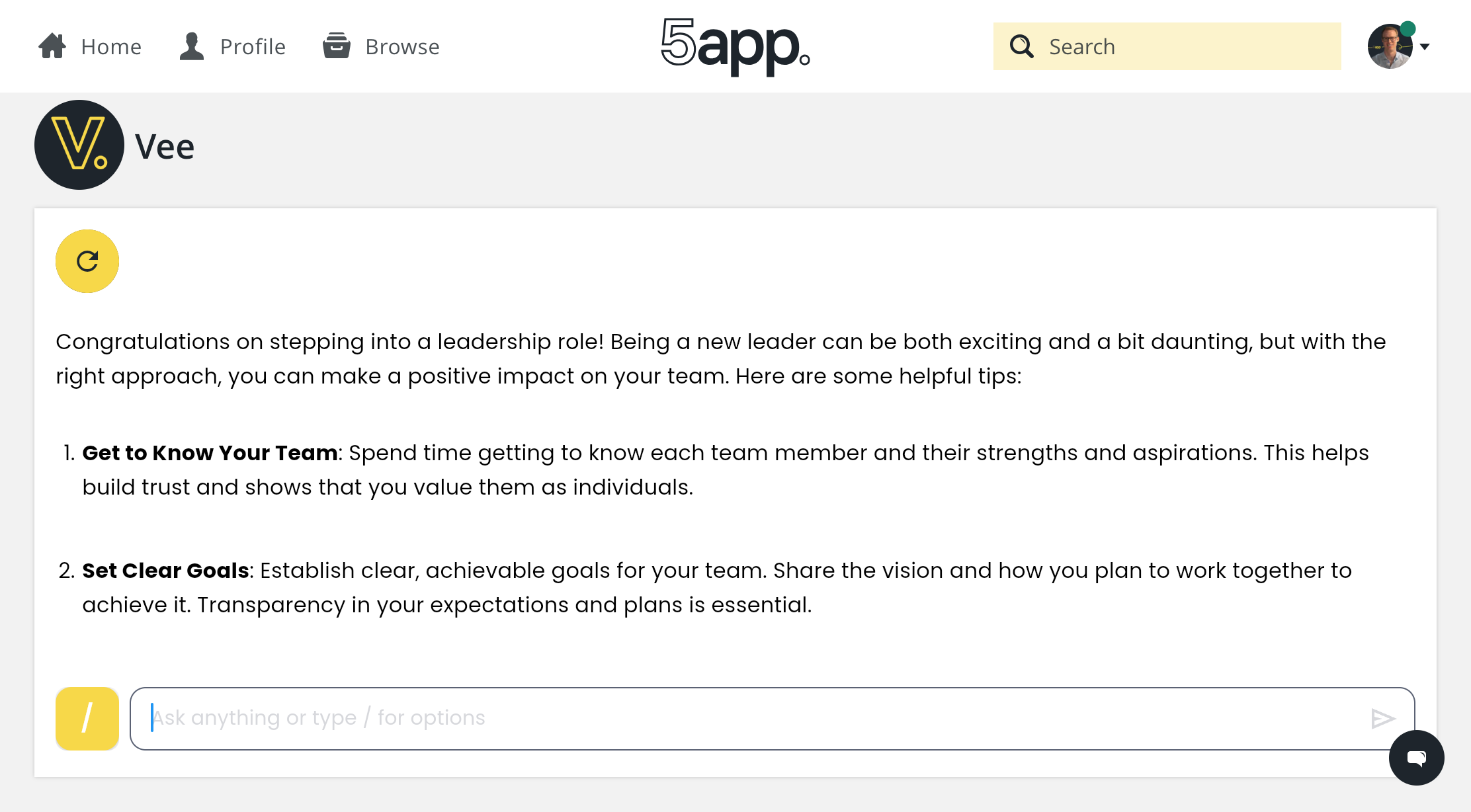Did you know that a staggering 82% of managers have had no formal management and leadership training, making them ‘accidental managers’?
It’s easy to see how it happens. In many businesses, the career trajectory is essentially being promoted from ‘someone who is managed’ to ‘someone who manages’ – and very rarely does that come with any training to help an employee make the transition. Whether you’re onboarding a new manager into your company with no previous management experience or you’ve just promoted someone into a leadership role, it pays to invest in first-time manager training.
After all, almost 70% of employees would quit a job over a bad manager – so why take the risk?
As anyone who’s ever had a bad manager knows (yes, that’s literally all of us), being good at your job function doesn’t necessarily translate to being a good manager or business leader. There’s a whole host of leadership soft skills that go into people management, such as communication, empathy, time management and conflict resolution, but as this new report shows, the vast majority of managers simply don’t have these skills.
If this sounds like your business, how can you upskill your new managers to help them go from accidental to exceptional?
Developing emotional intelligence

While we all start with an intrinsic level of emotional intelligence (EQ), the good news is that it’s totally possible to hone the skills and behaviours needed to boost our EQ through smart first-time manager training.
EQ consists of five key characteristics, all of which are equally important for any good manager:
- Self-awareness
- Self-regulation
- Motivation
- Empathy
- Social skills
Curious about your own emotional intelligence? Take this quick EQ test to see how you relate to others.
But before jumping into any courses or training materials on each of these leadership soft skills, first it’s important for managers to understand their own emotions. As a manager, there will always be times you’ll experience negative emotions at work, whether that’s frustration around a difficult situation or anxiety about having to deliver critical feedback. Recognising these emotions and knowing how to deal with them constructively is half the battle.
Once a manager has a good handle on their own emotions, they can transfer these skills to others. Upskilling a new manager should highlight the fact that recognising the emotions or moods of others will significantly improve people management skills, allowing new managers to develop empathy and better support their employees.
Are your new managers struggling with change management? It could be time to consider a virtual coach. VeeCoach, our new AI tutor agent, offers personalised training on a wide range of leadership soft skills, helping out with upskilling your new managers without adding to the burden on the L&D team.

Managing change

In times of change at work (and especially in times of crisis), employees look to their managers for support, guidance and reassurance. If an employee sees their manager panicking, this will naturally create uncertainty and anxiety throughout the team.
In fact, change management encompasses a variety of different skills. To manage change successfully, managers need to be adept at conflict resolution, risk management, stakeholder analysis, project management and, above all, communication. Bringing together these skills will ensure that the manager is viewed as a reliable, competent constant during times of change, not someone who is about to crumble under pressure.
Managers are often the go-between who can ‘translate’ between senior leadership and their own employees. If the CEO announces a big change to business operations, employees will wonder what it means for them, so the manager can use their own understanding of the business context and personalities of senior leaders to give their own team the information they need to confidently perform their roles.
Developing others

94% of workers would stay with an employer for longer if the company invests in employee development.
- ClearCompany, 2023
New managers often struggle with the transition from being solely focused on their own performance to also being responsible for supporting their team. 5app content partner Hemsley Fraser recommends the following 12 steps to ensure your managers have the right leadership soft skills to drive employee development:
- Become a coach and mentor.
Good managers can guide and encourage their employees based on their own career experience. Find out how employees want to develop their skills, and become their biggest cheerleader.
- Never miss an opportunity to give feedback.
Giving feedback is an art, not a science, and managers should be comfortable giving both positive and negative feedback. Managers should also be receptive to feedback from employees - it’s a two-way street.
- Set an example.
‘Do as I say, not as I do’ isn’t going to fly in a business environment. All managers should model the behaviours they expect from their employees, and not expect their team to follow a different set of rules.
- Let people take risks.
The best managers let employees take risks with the understanding that they may not pay off. Create a culture where employees feel safe to learn from their mistakes to encourage faster, more innovative development opportunities.
- Talk openly about strengths and weaknesses.
Nobody is good at everything, but everybody is good at something. Make sure everyone on the team knows where their strengths and weaknesses lie so they know where to focus their development efforts.
- Give time for creativity.
When you’re a time-pressured manager, it’s very easy to get stuck in a rut. Take the time to get creative with your team to ensure your processes and ideas stay fresh and based on the latest and greatest thinking.
- Encourage social networking.
Sometimes, the best thing a manager can do is put their employees in touch with the right people. Managers tend to have great networks, both inside and outside the company, so don’t be afraid to make connections and get your employees interacting with others!
- Delegate.
While there will always be times when managers need to get their hands dirty, it’s impossible to do everything yourself. Knowing your team’s strengths and interests will allow you to delegate tasks, keeping the team moving forward at pace without those all-too-common management bottlenecks.
- Make time and space for reflection.
That might be together or independently. Encouraging employees to reflect on what went well, what could be improved and what lessons the team can learn at the end of each project will keep everyone thinking critically and ensure constant improvement over time.
- Let people spend time outside of their own role.
A manager’s job isn’t to keep their team on a tight leash. If an employee expresses an interest in a different area of the business, consider setting up a meeting for them with the relevant department, or find out if they can shadow someone to get a feel for the role.
- Promote collaboration.
No employee is an island, and the best ideas tend to surface when people work together. Instead of relying on one person to generate ideas related to their own functional area, good managers encourage collaboration between employees with complementary skills and perspectives to break down silos and ensure the very best ideas get heard.
- Show people that you trust them.
In light of the return-to-office rush, many employees have been left wondering why they need to sit in an office to do exactly what they’ve been doing from home for the past few years. Any good manager’s default position should be to trust their employees to do their jobs effectively. Nobody likes a micromanager, and as long as your employees are meeting their targets and producing high-quality work, you should trust them to do what works for them.
